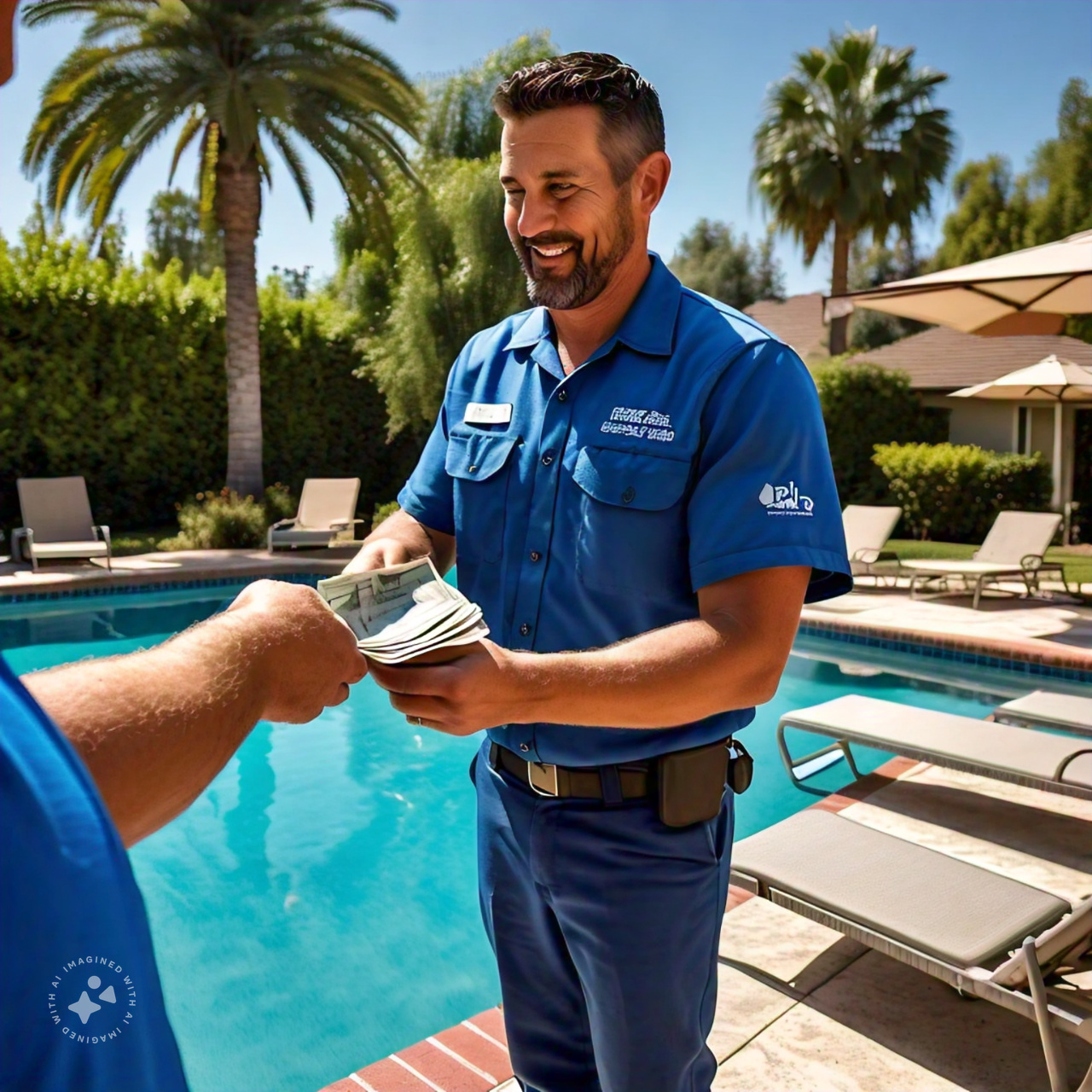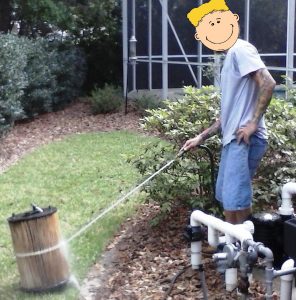In the world of pool service companies, figuring out how to compensate technicians is a frequent topic of discussion. As a business owner, you’ve likely wondered about the best way to pay your employees: by the hour, salary, or per pool. Today, we’re diving deep into one of the most popular compensation methods in the industry—piecework pay, where employees are paid per pool they clean rather than by the hour.
Listen to Rudy discuss Piecework Pay on the Talking Pools Podcast HERE ⬇️
What is Piecework Pay?
Piecework pay, or pay-per-pool, is a compensation model where technicians are paid based on the number of pools they service rather than how long it takes them. For example, a technician may be paid a fixed rate—say $12—per pool, whether they clean five or 15 pools in a day. This method is enticing because it ties compensation to productivity, but it’s important to understand the legal requirements and nuances involved.
Types of Piecework Pay
There are several models of piecework pay, each offering a different approach to compensating your technicians:
- Straight Piecework: This is the most straightforward method, where a technician is paid a fixed rate for each pool they clean. For instance, if you pay a technician $12 per pool, they will earn $120 for cleaning ten pools, no matter how long it takes.
- Differential Piecework: In this model, employees are paid at different rates depending on their productivity. For example, you might pay $12 per pool up to 10 pools, but if the technician completes 15 pools, the pay for all pools increases to $15 per pool. This incentivizes employees to work more efficiently and complete more tasks.
- Piecework Plus Hourly Rate: This model guarantees that employees earn at least minimum wage, even if they don’t complete enough pools in a day. For example, if a technician only services one pool but your guaranteed hourly wage is $20, they will still be paid that $20 instead of just $12 for the single pool.
Legal Considerations
Under the Fair Labor Standards Act (FLSA), total compensation for piecework must meet or exceed federal minimum wage when averaged over the total hours worked. Additionally, employees must receive overtime pay for any hours worked over 40 in a week, calculated at 1.5 times the regular rate of pay. It’s crucial to ensure compliance with both federal and state labor laws, as state regulations can be stricter than federal ones.
Calculating Pay in a Piecework System
Let’s look at an example to illustrate how to calculate pay in a piecework system. Suppose a technician services 50 pools in a 40-hour work week at $50 per pool. The total earnings would be $2,500, and the regular rate of pay would be $62.50 per hour ($2,500 divided by 40). Since the regular rate exceeds the federal minimum wage, the technician is compliant with labor laws. However, if the technician worked 45 hours that week, the additional five hours must be paid at the overtime rate of $93.75 per hour ($62.50 x 1.5).
When Hourly Pay is Necessary
Even in a piecework system, there are instances where hourly pay is required. Non-productive time—such as traveling between pools, loading the truck, or waiting at a job site—must be compensated at an hourly rate. For example, if a technician has to wait due to a downpour or a blocked driveway, they must be paid for that wait time in addition to the per-pool rate.
Setting Fair Piecework Rates
Setting fair and competitive piecework rates is essential for both attracting and retaining top talent. Consider the complexity of the job when determining the rate—cleaning a small 5,000-gallon saltwater pool with in-floor cleaning systems is vastly different from maintaining a large 30,000-gallon outdoor pool in a wooded area. You can’t pay the same rate for these different tasks and expect employees to feel valued. Involving your technicians in the rate-setting process can also foster transparency and trust.
Monitoring and Adjusting Piecework Pay
It’s important to regularly monitor and adjust your piecework pay system to ensure it remains competitive and fair. Market conditions, changes in pool size or complexity, and employee feedback can all impact how you structure your pay rates. Be open to making adjustments based on these factors to keep your employees happy and productive.
The Pros and Cons of Piecework Pay
Implementing a piecework pay system can have several advantages:
- Increased productivity: Technicians are motivated to complete more tasks, knowing their pay is directly tied to their output.
- Predictable labor costs: Since pay is based on pools serviced rather than hours worked, labor costs become more predictable.
- Higher earnings for top performers: High-performing technicians can earn more, leading to greater job satisfaction and retention.
However, there are also challenges:
- Maintaining quality: Technicians may be tempted to rush through jobs to maximize earnings, which can affect the quality of their work.
- Legal compliance: Navigating the legal requirements of piecework pay can be complex, especially when it comes to tracking non-productive time and ensuring compliance with overtime regulations.
Final Thoughts
Piecework pay can be a great option for pool service companies, but it’s essential to understand the legal framework and best practices for its implementation. Always track your employees’ hours, ensure they are fairly compensated for all tasks, and involve them in the rate-setting process. Consulting with a labor lawyer or accountant can help ensure you’re in compliance with federal and state labor laws, keeping both your business and employees protected.
By taking a thoughtful, structured approach to piecework pay, you can create a system that boosts productivity, improves job satisfaction, and contributes to the long-term success of your pool service company.






